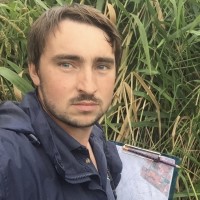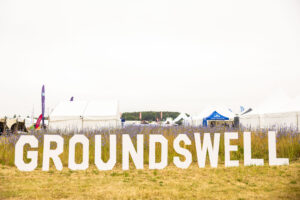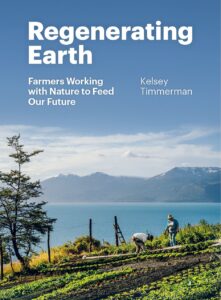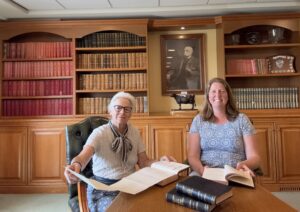Piers Sangan was one of the speakers at the Jersey Farming Conference in November 2020. He spoke to Caroline Spencer

Taking up 50 per cent of land in Jersey, the agriculture industry has the potential to do more singlehandedly to protect the Island’s biodiversity than any other NGO or government agency.
That was the message that conservationist and ecologist Piers Sangan gave to the Jersey Farming Conference last month.
‘Agriculture and wildlife have a strange relationship,’ he said. ‘A lot of our British wildlife evolved alongside agriculture but at no point has agriculture specifically been undertaken for the benefit of wildlife.
‘Now we’re asking farmers to undertake work specifically for the benefit of wildlife. A lot of what used to be beneficial has been lost because of modernisation. In some cases it could simply be a matter of leaving places to be a bit more messy.’
Piers, director of Sangan Island Conservation, believes that farmers are already doing a lot of good work but it is time to start linking aspects of it together.
‘There’s already a huge number of habitats on farm land and it’s a case of appropriately managing those,’ he said. ‘It’s also about farmers being confident to undertake some of the work themselves.’
He takes hedgerows as an example.
‘A hedgerow is not natural. It’s an artificial product of agriculture. Hedgerows were never planted for wildlife. Wildlife adapted to hedgerows.
‘Many of them are in a really bad state, it’s not anyone’s fault, but they need to be coppiced, cut right back down to the ground to allow them to re-shoot. There is a public outcry when there is hard cutting, but when using the right methods for the right reasons, farmers need to have the confidence to do this.’
Managed well, farms will be the nature reserves of the future,’ he says. Conversely, it is easy for them inadvertently to do a lot of damage.
‘We need to start looking at everything in a new way,’ he said. ‘We can get very trapped looking at everything in silos but applying large-scale habitat management to a small area doesn’t work.
‘New hedgerow planting might not be the right thing to do. Those grass banks already provide vital habitat for different species. You could be damaging that. It’s all about balance and it should always be done on the science and species that you have.’
Piers also believes that Jersey could create larger open fields. ‘You can create bigger fields by moving boundaries from the centre to the edge. Creating wider margins at the sides and larger, more open fields will benefit more wildlife. For example, certain ground-nesting birds prefer wide open fields so they can see predators coming.’
Piers has been working with Jersey Dairy, the first dairy in the world to achieve LEAF accreditation. LEAF (Linking Environment and Farming) is an internationally recognised mark for high environmental standards.
The dairy farms account for roughly 26% of land in Jersey and have more than 2,000 different species recorded, he said.
Every Jersey Dairy farm has a biodiversity enhancement plan for the next 10 years and Piers sees this as a great start to connected management.
Piers, who joined the LEAF technical advisory committee a year ago, will help identify which species are most suitable for which farm.
‘We have a unique biodiversity. Some of our species can travel to any point in the Island. Some bats might fly 45km in one night to France and back. A single barn owl pair can move across half a dozen farms in one night’s hunting. So for your own biodiversity enhancement plan to be effective, you need your neighbouring farms to have similar management styles.’
It therefore also makes sense when he says that the agriculture industry should have a biodiversity project co-ordinator, a single point of contact for ecological projects across the Island.
‘We would be able to achieve a lot more,’ he said. ‘I am not sure how it would be implemented or funded but I envisage it separate from government. It would be very beneficial to the environmental landscape to start co-ordinating agricultural and environmental practice.’
Piers, who is currently undertaking a Masters in Island Biodiversity and Conservation, added: ‘We have lost more species than people realise and that’s a shame. Brown hare, water shrew and water vole, and so on. If we had joined-up management, with the Island viewed as a whole, not field by field, we could look at some really great restoration projects, we could start looking at large blocks of land and potentially see if there is any feasibility in getting some of the species back, which would be amazing.
‘At the end of the day, a farm is a business. If we lose farms we are more likely to lose biodiversity, because while those farms are active, the landscape is being managed and that rural open landscape is protected because it’s being worked. Loss of farmland is more of a threat to biodiversity than anyone perceives.
‘The agricultural sector has the potential to play a prominent role in wildlife conservation. Without it we will lose biodiversity.’




